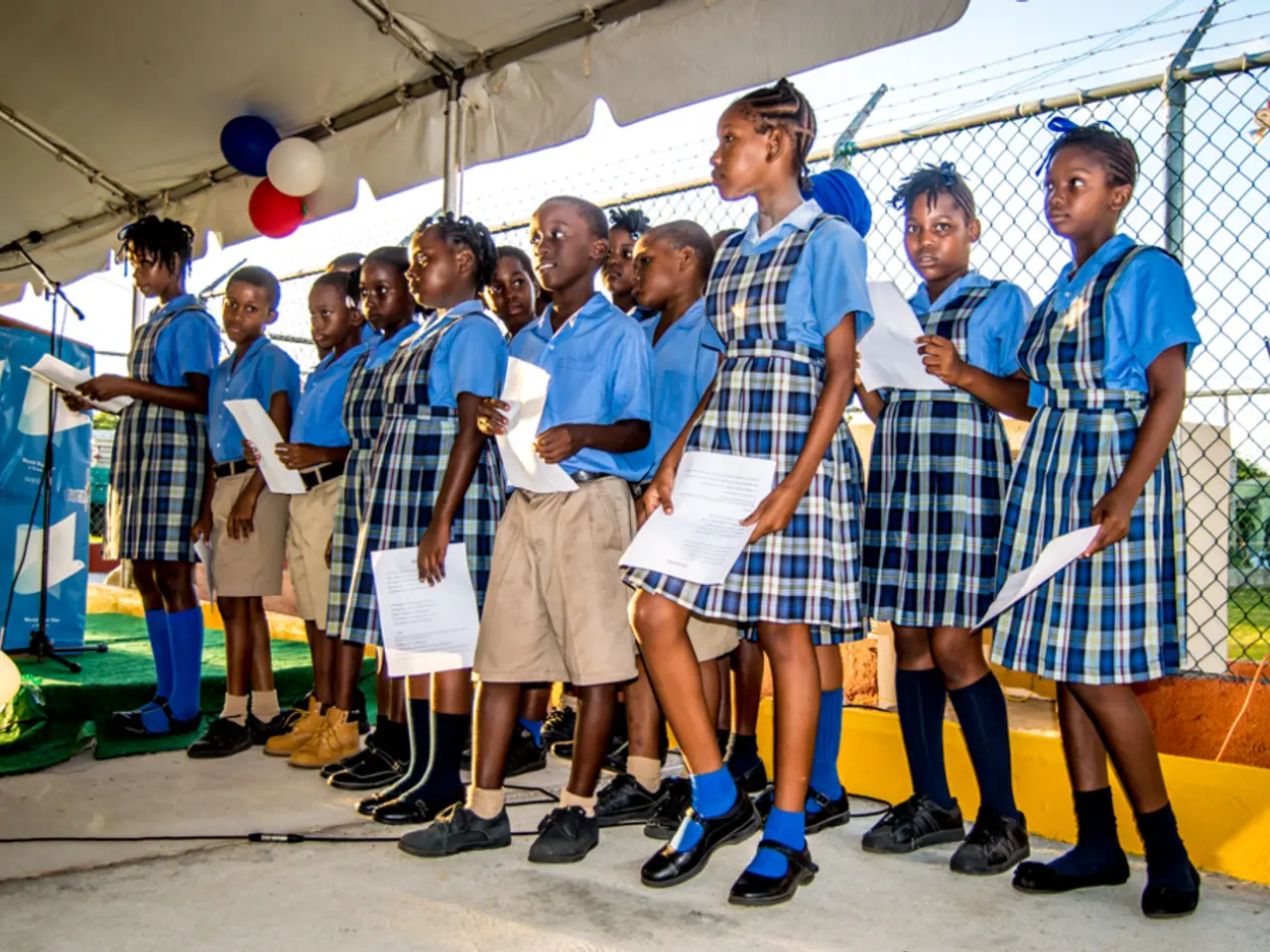Education in the American Authoritarian Regime: returning to school amidst the surveillance state
In the United States, the presence of School Resource Officers (SROs) in public schools has become a contentious issue, with concerns about safety, education, and civil rights at the forefront of the debate.
SROs, law enforcement officers assigned to schools, are intended to enhance safety, build relationships with youth, and facilitate communication among students, staff, and police. Their roles often include conflict mediation, substance abuse and violence prevention education, truancy intervention, and mentorship to students [1][5]. However, the execution of these duties has raised eyebrows nationwide.
The treatment of children by SROs can have significant impacts, both positive and negative. On the one hand, SROs can provide counseling, mediation, and a bridge to community resources [1]. On the other hand, there are concerns about the criminalization of student behaviour, particularly among marginalized groups, which can affect students' educational rights and experiences [6].
The consequences of these practices extend beyond the classroom. Children are suffering from post-traumatic stress disorder, nightmares, anxiety, mistrust of adults in authority, as well as feelings of anger, depression, humiliation, despair, and delusion as a result of harsh methods used for minor infractions [7].
Moreover, the growing presence of police in U.S. schools has led to greater police involvement in routine discipline matters. Schools are increasingly resembling places of detention rather than places of learning [8]. School resource officers, funded by the U.S. Department of Justice, are acting as de facto wardens in elementary, middle, and high schools [9].
Parents are not immune to this harsh treatment. They can be arrested for allowing their children to walk to school, play at the park, play at the beach, or play in their own yard alone [10]. Parents have also been fined and threatened with jail time for their children's bad behaviour or tardiness at school [11].
These tactics are legal when employed by school officials or school resource officers in the nation's public schools [12]. However, the use of these methods is causing a generation of children to grow up with a distorted view of authority and justice. If we want to raise up a generation of freedom fighters who will operate with justice, fairness, accountability, and equality towards each other and their government, we must start by running the schools like freedom forums [13].
Instead of teaching the three R's of education, children in schools are taught indoctrination, intimidation, and intolerance. Minor transgressions such as playing cops and robbers on the playground, bringing LEGOs to school, or having a food fight can lead to punishment [14].
The balance between safety and students' civil rights is a delicate one. While SROs contribute to safer schools and can foster trusted relationships, there are legal and civil rights frameworks designed to protect students from discrimination or unfair treatment [6]. The Department of Justice continues to investigate and intervene where discrimination or unequal educational opportunities occur, such as in cases involving students with disabilities or other vulnerable populations [2].
This article provides a snapshot of the ongoing debate about SROs’ roles and influence in American public schools. The issue is complex, with arguments on both sides, and it is essential to continue the conversation to ensure safe, inclusive, and equitable educational environments for all students.
References: 1. School Resource Officers 2. Department of Justice 3. School Resource Officer Reform Act 4. Protection of Pupil Rights Amendment 5. School Resource Officers: National Study of School Police Force 6. The School-to-Prison Pipeline 7. The Traumatizing Effects of Zero Tolerance Policies in Schools 8. The Militarization of Our Schools 9. The Growing Role of Police in U.S. Schools 10. Parents Arrested for Their Children's Bad Behavior 11. The Criminalization of School Discipline 12. The Legalization of Harsh Discipline in Schools 13. Raising Up a Generation of Freedom Fighters 14. The Indoctrination of Intolerance in Schools
- The presence of School Resource Officers (SROs) in American public schools has sparked a heated debate, focusing on subjects such as education, safety, and civil liberties.
- Despite SROs' intended roles in facilitating communication, substance abuse prevention, and mentorship, concerns about the criminalization of student behavior, particularly among marginalized groups, have arisen.
- The heavy-handed tactics employed by SROs can result in negative impacts on children's mental health, leading to conditions like post-traumatic stress disorder and feelings of anger and despair.
- As schools increasingly resemble places of detention, civil liberties such as free speech and truthful education may be compromised, detracting from general news and education-and-self-development.
- To ensure equitable and inclusive educational environments, it's crucial to maintain a balance between safety and students' civil rights, utilizing legal and civil rights frameworks to protect all students from discrimination or unfair treatment.




